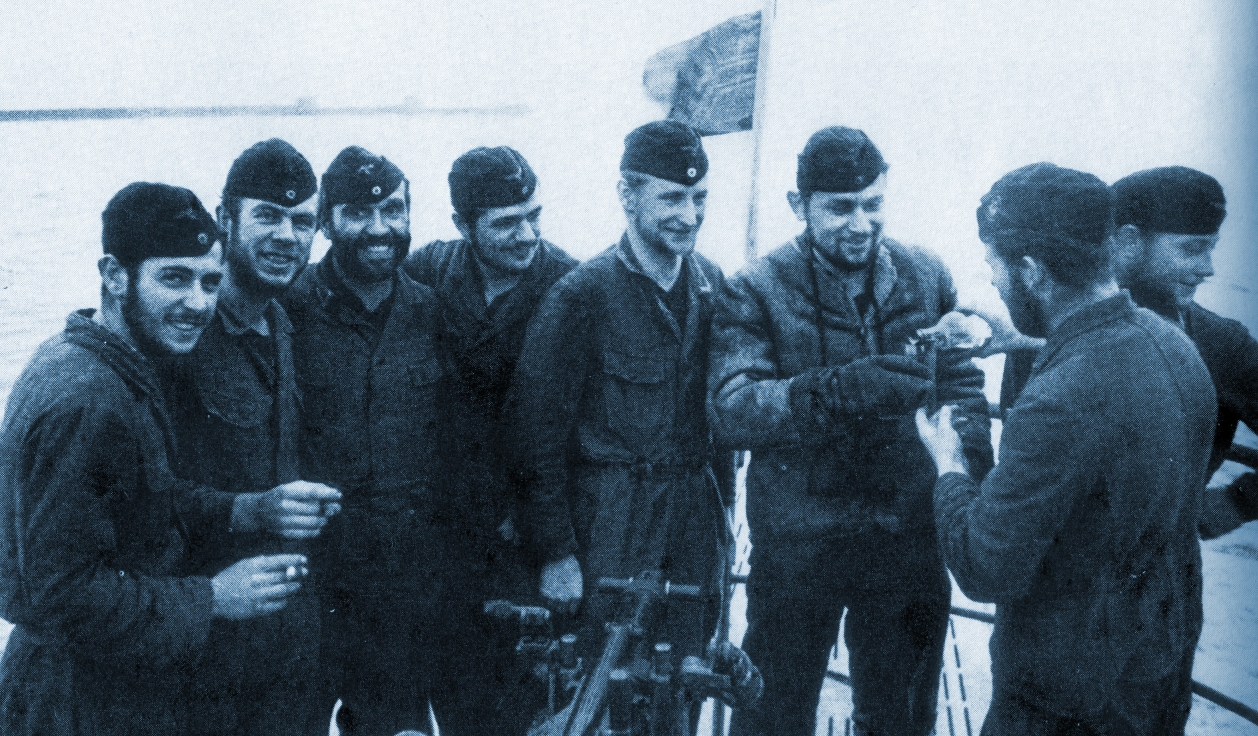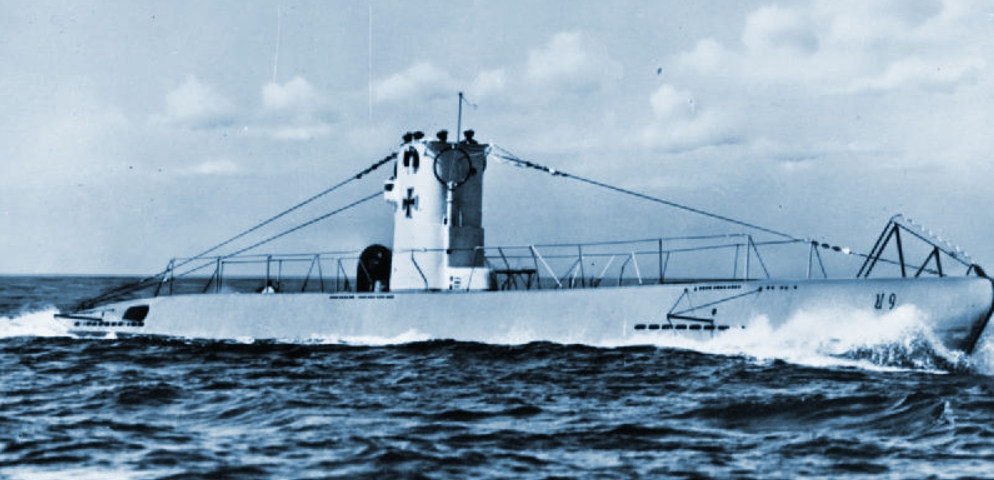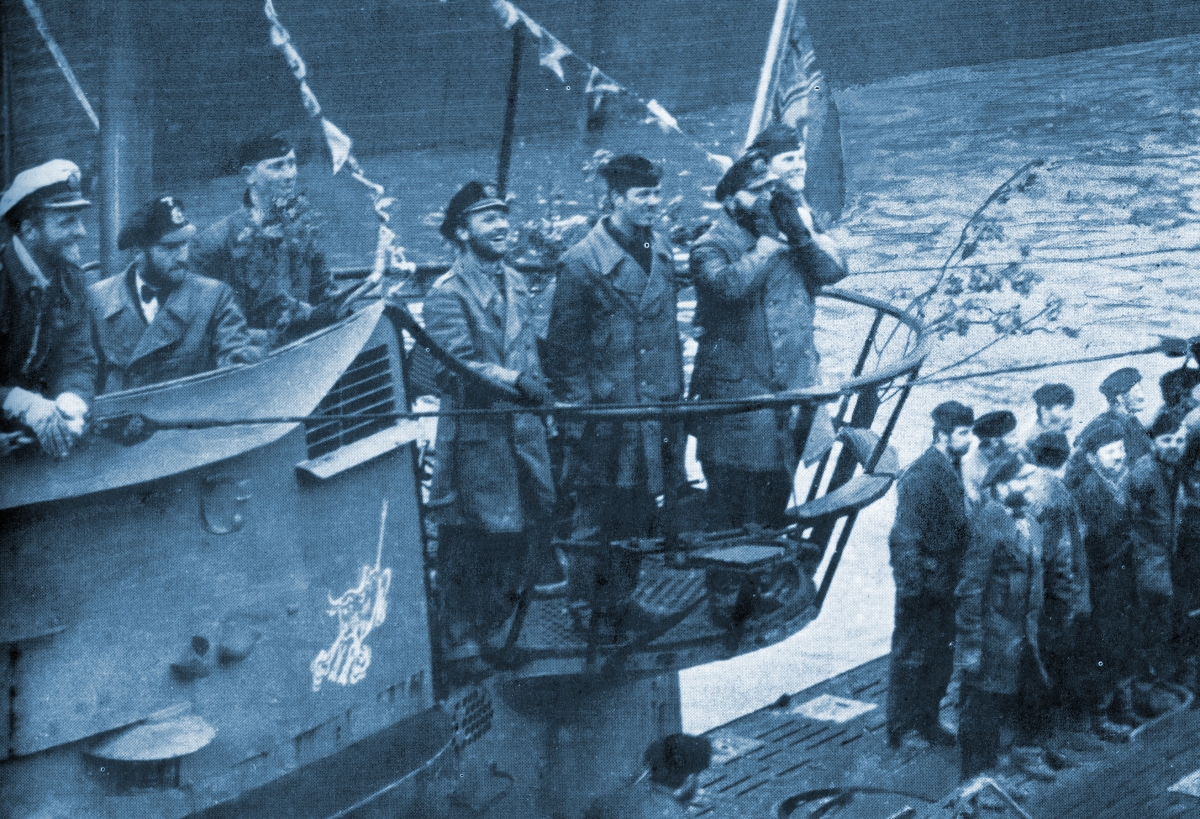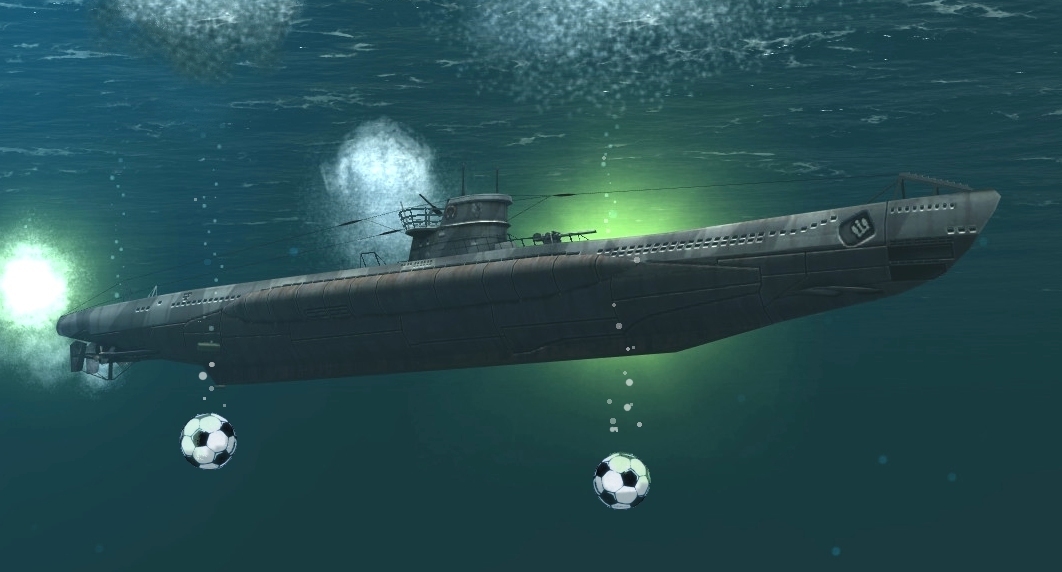An analogue WW2 U-boat MMO that uses real football results instead of dice, Das Football Boot is capable of producing surprisingly plausible submarine sagas. The catch? Players need to be patient, conscientious, and willing to undertake a little bookkeeping or those sagas have no chance of developing. Last season, I found myself wishing for emailed match reminders (captains must choose a Caution setting prior to every match their chosen team plays) and automatic log updates (after a match, it’s up to you to alter your sub’s stats appropriately). Several decades of intensive video gaming have made me workshy, it seems.

As a small wolfpack of dedicated convoy molesters went the distance last season (Total ships sunk – 115. Total tonnage destroyed – 618,700. Total U-boats lost – 8) producing in the process some rather entertaining comment-delivered AARs, I reckon a second season of DFB is worthwhile.

Subtler damage modelling… special rules for floodlit matches… although the inaugural playthrough generated some interesting rule tweak suggestions, Roman, DFB’s inventor, concerned that additional complexity risks making an already intricate rule system even harder to follow, has decided to only implement a couple of changes for 2023-24.
In the original rules, because goals conceded during injury time were always counted as either 45th or 90th minute goals for damage purposes, players in their forties and early nineties (Your age at the start of a game has significance in DFB) were at a slight disadvantage. In order to eliminate this inconsistency, Roman has decided to adopt a suggestion from Blastaz. Injury time goals now do no damage to DFB subs, although they still ‘consume’ a Caution, if Caution is set.

Keen to give careless captains who run out of fuel close to home a slim chance of salvation, he’s also introducing a new tow/refuel rule. If you run out of diesel less than 6F from port, then your next match is treated as a recovery bid. In order to make it home you must A) Concede no goals in the following match, and B) Travel the remaining distance to port (substitutions = distance travelled). Fail to meet both of these conditions and you are considered sunk. Your caution level is irrelevant during a ‘towed’ turn and you are incapable of sinking anything.
If you’d like to see any other small changes made, put your ideas in the comments section ASAP and Roman will give them serious consideration.
* * *
DFB 2023-24 INSTRUCTIONS

First off you need to select a real-world football club, ideally one near the start of its season, to act as your dice roller. To ensure theme-appropriate difficulty, this side must not be in the top six of its division when you select it.

The smaller the division, the more chance you’ll survive the season, the less chance you’ll break tonnage records. As the success of your Type VII will be closely linked to the fortunes of your chosen club, obviously it pays to pick a club with good prospects if you can.
Your Type VII’s identification number is a “U-” followed by your age (For reasons that will become clear, DFB is only suitable for players aged between 6 and 85)

Your submarine departs its base with 14 torpedoes and 36 ‘fuel’ aboard. To discover your first Patrol Area (PA) find the name of the last first-team player to score for your club in a league game and count the number of letters in his or her surname. If the scorer in question has a double-barrelled or two part surname, use the second half of the name only to establish your PA. The number of the PA indicates how much fuel is required to reach it.
Calculated risks

Before your club plays its next domestic league match (cup games, friendlies, and play-offs are ignored by DFB) consider the opposition, and set an appropriate Caution level. Until you reach your Patrol Area, your Caution setting must be either 2 or 3.

Caution cancels out goals, and, in DFB, goals represent both your torpedoes and Allied depth charges. For instance, a Caution setting of ‘1’ would turn a 2-2 scoreline into 1-1, and a Caution setting of ‘3’ (the maximum possible) would transform 5-1 into 2-0 (scores can’t be negative). Don’t fancy your side’s chances in the next match? Consider setting a high Caution level such as 3 to minimise potential risk. Of course, if your team finishes up winning 4-0, the result will become 1-0, and you’ll kick yourself for being lily-livered.
When Saturday comes
Once the match has been played, you use the Caution-modified score to ascertain whether you’ve sunk any ships or suffered any damage.

If Caution was set at 0, every goal your team scored equates to a sunk ship. Simply take the minute each goal was scored, add two zeros to the end of it, and you have your haul. Let’s say your side netted in minutes 37, 45, 48, and 90+2. You would add ships of 3700, 4500, 4800 and 9000* tons to your tally.
* Goals in injury time are always recorded as either 4500 or 9000 ton ships.

Things are a little more complicated when Caution has modified a scoreline. When determining the ships sunk during, for example, a 3-1 win turned into a 2-0 win by a Caution setting of 1, you’d ignore your side’s first goal, and use the second and third as ship definers. Say those three goals had been scored in minutes 8, 42, and 45+1 – your two victims would weigh in at 4200 and a 4500 tons respectively.
Depth charges in the water!

Okay, now you’re ready to check for depth charge hits. When Caution is 0, all enemy goals scored in normal time are potential hull splitters. If you see a number that’s identical to, or within one of, your sub’s identification number on the opposition’s scoresheet, hard luck, it’s curtains for you and your crew. Ash cans that explode more than one but less than six ‘minutes’ away from your sub’s number, damage your Type VII, assuming it’s not already damaged, in which case they’re lethal.
The maximum Caution that can be used by the captain of a damaged sub is 2.

When Caution has modified a scoreline, it’s necessary to ascertain which of your opponent’s goals imperil and which don’t. You do this by cancelling-out goals chronologically when your club is playing at home, and reverse-chronologically when they are playing away. See above for one example.
Although you can’t be damaged or destroyed by a goal scored in injury time, such goals are considered when Caution-modifying a scoreline to check for depth charge hits. For example, if your team loses a home match 1:3 with a Caution level of 2, and the opposition scored their goals in minutes 45+1, 56, and 65, your goose would be cooked if you were captaining U-64, U-65, or U-66!

DFB doesn’t much care whether a depth charge or shell is delivered by an aircraft or a warship, but study the badge of the club that struck the fatal blow, and all will be revealed. If you were sent to Davy Jones’s by a side with a winged creature, or a star, moon, or sun on their crest then you were slain by one of Coastal Command’s aerial assassins.
Bookkeeping

Recording kills and checking for depth charge damage aren’t the only post-match tasks in DFB. Before you start thinking about adjusting your Caution level in readiness for your next fixture, a bit of bookkeeping is required.

Every ship you sent to the bottom during the match costs you one torpedo unless it was under 1000 tons or it was dispatched with a penalty kick in which case it counts as a ‘free’ deck gun kill.

^ In the above example U-71 is presumed to have an Experience Level of 0.
To check whether you expended any additional eels due to misses, duds, and double hits, subtract your Caution level from the number of yellow cards your team received during the match, then factor in Experience (see below), and if the total is positive, subtract it from your torp tally.
U-boats start with an Experience level of 0 and gain a level for every patrol they complete. Each experience level negates one yellow card awarded to a player who is later substituted (The yellow cards of players still on the pitch at the final whistle are experience-proof.). In other words, the longer a sub survives, the less likely it is to squander precious eels.
Example. On your second patrol (Experience = 1), you go into a match with Caution set to 1, and emerge with three yellow cards. One card is automatically neutralised by your Caution setting and because one of your carded players was later substituted, your Experience also neutralises a card. Result? You only ‘waste’ one eel.

Fuel adjustment comes next. Find out how many substitutes your team used during the match, and reduce your fuel total by that number. As fuel doubles as distance in DFB, by comparing your current fuel level to a ‘full tank’ (36), you can work out whether you’ve reached your assigned Patrol Area yet. The status of a sub that has covered the requisite distance to its PA (the voyage may take several turns) changes from ‘outbound’ to ‘patrolling’ before the next match. Assuming a ‘patrolling’ U-boat isn’t damaged, it is free to use the full range of Caution levels: 0 to 3.
This is probably the right moment to mention milk cows. While your sub is ‘patrolling’, hat-tricks scored by your side’s players completely replenish your fuel tank and stock of torpedoes.
Kiel or be killed

No DFB skipper would dream of quitting their patrol area and heading for home unless…
a) Their Type VII was damaged.
or
b) Their torpedo count was 3 or fewer.
or
c) Their fuel total was equal or less than their Patrol Area + 5.
When and only when you find yourself in one or more of these states at the end of turn, are you free to change your sub status to ‘inbound’. The same Caution restrictions that apply when travelling to the PA, apply when heading back to base (Only Caution levels 2 or 3 can be employed).
Reach your base by burning the requisite quantity of fuel (your PA number), and the next match is devoted to rest, replenishment, and repair. In effect, you must sit on your hands for one fixture. Once this enforced combat-free break is over, it’s back to business. Before the next match, determine your next Patrol Area in the prescribed manner (Find the last player to score for your club in a league game and count the number of letters in his or her surname) and decide on a Caution level.
Run out of fuel on the return leg of a patrol? Assuming you are less than 6F from port when the engines lapse into silence, then your next match is treated as a recovery bid. In order to make it home you must A) Concede no goals in the following match, and B) Travel the remaining distance to port (substitutions = distance travelled). Fail to meet both of these conditions and you are considered sunk. Your caution level is irrelevant during a ‘towed’ turn and you are incapable of sinking anything.
Topp seadog?

Roman says there are various ways to ‘win’ Das Football Boot. Surviving until the end of the season is no mean feat, even if you choose a club in one of the smaller divisions as your fate fount. Stay alive and sink more steel than the Kriegsmarine’s ‘Tonnage King’, and my Chief Foxer Setter will be seriously impressed!
* * *
DFB in a nutshell

To start a game, choose a football club not in the top six of its division, use your age as your U-boat’s identification number, determine your first Patrol Area using the name of your team’s last scorer, and choose a Caution level (2 or 3 as you are ‘outbound’) for your first match.
After every match, using the result, work out if you’ve sunk anything, then ascertain whether you suffered any damage in the process. Amend your torpedo and fuel totals with the help of yellow card and substitute counts. Finally make changes to sub status (U-boats can be outbound, patrolling, inbound, repairing and replenishing, under tow, or sunk), and choose a Caution level for your next fixture.
Happy hunting, fellow Sea Wolverhampton Wanderers!


At the risk of muddling my allegiances, I’m going to put my faith in Spitfires this season. Tomorrow U-53 (Eastleigh FC) will depart for PA 8 with a Caution setting of 2.
21/08/2023 Outbound. F33. T11. Caution 3. Confidence: Deteriorating.
27/08/2023 Outbound. F31. T11. Caution 2. Confidence: Low.
01/09/2023 Outbound. F29. T10. Caution 2. Tonnage: 7000(1). Confidence: Improving.
05/09/2023 Patrolling. F27. T10. Caution 0. Tonnage: 7000(1). Confidence: Moderate.
13/09/2023 Patrolling. F24. T6. Caution 0. Tonnage: 7000(1). Confidence: Severely shaken.
17/09/2023 Patrolling. F21. T1. Caution 0. Tonnage: 13700(3). Confidence: Yoyoing.
22/09/2023 Inbound. F20. T0. Caution 3. Tonnage: 15400(4). Confidence: So-so.
24/09/2023 Inbound. F18. T0. Caution 3. Tonnage: 15400(4). Confidence: Building.
28/092023 Inbound. F16. T0. Caution 3. Tonnage: 15400(4). Confidence: Building.
U-32(Cercle Bruges) reporting for duty.
Heading towards PA-6 with caution set to 2.
Gently leaving the port of Zeebrugge (only call it port of Bruges if you want to invoke the wrath of the locals), U-32 begins its first campaign.
The first sighted convoy is ignored, outbound caution and the hopes of larger bounty see to this.
U-32 (Cercle Bruges, not to be confused with it’s less likeable neighbour Club Bruges) continues it’s way to PA-6, with 14 torpedoes, 33 fuel and good spirits.
Caution level remains at 2.
The captain of U-32 once more decided to be very cautious when outbound for the PA. All hostile ships were avoided on the way.
But now that PA-6 has been reached all caution will be cast aside and the crew is rearing for blood (or steel/wood in this case).
U-32 will start patrolling with 14 torpedoes, 30 fuel and caution set to 0.
Ps. Will start using the google doc asap
Having arroved at the pateol area, U-32 start hunting for prey. After spotting what seems to be a loghtly guarded convoy, U-32 goes in for the kill. Launching two torpedoes and sinking two juicy ships, U-32’s captain can only be pleased with th performance of his crew. The sole deptcharge that was fired by the convoys escort while the scamperred off was so far away the crew of U-32 barely noticed it, that could be the reason why U-32 does not change the caution level at all.
With caution still at 0, 12 torpedoes and 26 fuel, U-32 continues with it’s mission.
U-50 (Liverpool) – undamaged – 14 t – 36 f – 0 tons sunk
U-50 (A 2023 remake of the previous war’s eventually doomed early success U-50 Liverpool) is back in action. Heading to PA-4 (Diaz) with barely any caution at all. Well, 2.
The crew are buoyed by the recent arrival of Japan to the Axis squad, particularly new crew member Endo, and looking forward to causing havoc off the Dorset coast as early as tomorrow!
It was inevitable that Hendo would be replaced by Endo. That’s why we had to steal all your other options.
U-50 (Liverpool) – undamaged – c2 – at pa-4 – 13 t – 31 f – 6200 tons sunk
Early success for the U-50, finding a large freighter joyfully unescorted as she sails along the surface to England’s South coast.
Sadly an enemy air patrol spotted her lining up the attack run, forcing a swift dive and some evasive manoeuvres. Their hopeful bomb easily dodged the attack could resume, and a perfect firing angle soon reached.
Wanting to save ammunition for later in the patrol and having no time pressure on the attack the captain closed right up to minimise the zig-zagging of the frightened freighter, and launched just a single torpedo. It struck just aft of the bridge, a huge hole causing the freighter to immediately founder.
Due to the threat from the air the U-50 couldn’t surface to provide directions to the ship’s lifeboats and instead left them, reaching the patrol area with no further incident.
It’s a difficult place to patrol but important to the war effort, so due caution (2) is being taken during the early phases of the patrol.
U-36 was one of the few boats to actually survive all of last season.
U-37 (Chelsea) will hope to carry on their good work.
Caution 2 as we head out to our first patrol zone. If I get a second I will refresh the old google doc.
I assume the sidebar link will be updated? Perhaps another candidate for a landing zone page, linking to old, new, and Blastaz’ soon to be updated external tracker?
https://docs.google.com/spreadsheets/u/0/d/18tpoBzRTgADAsDw4BDtqebmtesxNW-6o3iMaOEH9RTs/htmlview?pli=1#gid=507919530
Very very basic, but ready for the new season.
Is it perhaps worth creating a new sheet – with a tab-per-player it’s going to need a lot of scrolling for people to find their page, especially if there’s another U-age tab from last year.
You shared the sheet in read-only mode.
https://docs.google.com/spreadsheets/d/1iu7iAUbxTMedTnpwbKRJ89yPzxv02ngfO0zCIwmT3i0/edit?usp=sharing
Feedback taken on board, new season new sheet.
The spreadsheet is read-only, requiring us to request access to edit. Is that by design?
Ok. Hopefully it should work now?
I came across this game via a friend a while back and have been enjoying the combination of closely following my team’s results with designing elaborate spreadsheets and an evocative wartime narrative. Thank you for sharing this with the world!
There are a few scenarios that have arisen where we’re not sure what the correct outcome is – any clarification gratefully received:
1) you are on patrol with 0 caution and 0 experience. You have plenty of fuel but only 4 torpedoes left. During the match there are 3 goals for (no deck guns!) and 3 yellow cards – suggesting that a total of 6 torpedoes were fired, 3 hits and 3 duds. This is no good as you only had 4 in total to start with. How do you determine which of those 4 torpedoes hit and which missed?
2) same again, except this time you only had 2 torpedoes to start with. (It seems clear to us that a max of 2 kills can be claimed here, in spite of the 3 goals being scored).
3) Relating to the new towing rule, suppose now you are inbound, a distance of 3 from home and with 4 fuel left in the tank. During the match 5 substitutes are used – have you made it or home or do you now require a tow? And if the latter, over what distance do you now require to be towed?
Good to hear you are enjoying DFB, Tom, and thanks for pointing out these grey areas.
I’ve consulted Roman (DFB’s inventor) and he says he has always done his yellow card arithmetic after removing a torp for each sunk ship. So in situation 1, you’d get your three kills, but be eel-less at the end of the encounter.
In situation 2, you’d sink the earlier/smaller vessels, but not the last/biggest one.
In situation 3, you’d make it home without needing a tow. (In effect, you made it home with 1 fuel remaining. If you’d been 4 from home, you would also have made it. Only if you’d been five out, would you require assistance after the ‘five substitute’ match)
Apologies for not posting my thanks sooner – the clarifications are much appreciated.
We’ve come up with another possible grey area, this time whilst assigning a new patrol area. It’s possible that the last league goal for your club prior to heading back out to sea might have been an own goal. We could see a plausible argument that says you take the OG scorer who plays for another club – but the wording as above would suggest you’d go back a bit further until you found a scorer who does play for your club. Any thoughts?
I like the idea of OG scorers determining PAs, but Roman says he has only ever used players from his chosen team (goal in question must be for your club).